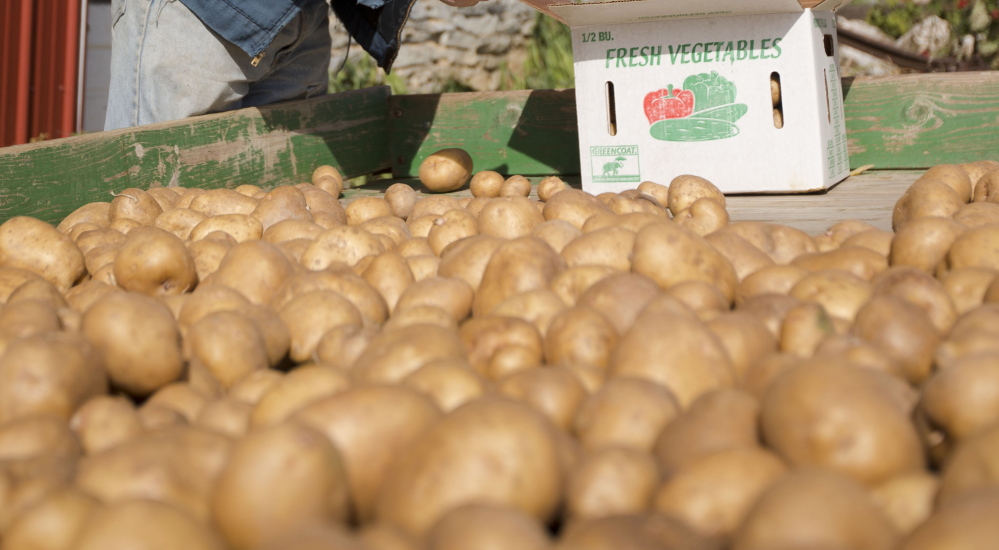WASHINGTON – It’s another political victory for the popular potato.
For the first time, low-income women would be able to pay for white potatoes with government-subsidized vouchers issued by the Women, Infants and Children nutrition program, known as WIC.
The potato provision is part of a massive spending bill Congress is considering before the end of the year.
White potatoes have been excluded from WIC since fruits and vegetables were first allowed under the program in 2009. It’s not that white potatoes themselves aren’t nutritious, but they’re often used to make french fries, which are usually fried or baked in unhealthy fats and oils.
The Institute of Medicine had recommended that they be excluded, saying WIC recipients already eat enough white potatoes.
The potato industry has aggressively lobbied for inclusion, saying it’s not as much about sales as the perception that potatoes aren’t as nutritious as other vegetables. Lawmakers from roughly 40 potato-growing states have been pushing for several years to include the potato in the program.
The potato’s advocates argue that it provides potassium, dietary fiber and folate, a water-soluble B vitamin, which can be helpful for pregnant women. They say it is also economical, which could help low-income mothers stretch their dollars.
Sen. Susan Collins, a Republican from the potato-growing state of Maine, has long promoted the nutritional attributes of potatoes, including potassium.
“Potatoes are cholesterol-free, fat-free and sodium-free and can be prepared in countless healthy ways,” she said in a statement Wednesday.
The potato industry had another major legislative victory in 2011, when Congress voted to thwart the Agriculture Department’s recommendation that only two servings a week of potatoes and other starchy vegetables be served in federally subsidized school lunches. The USDA effort was an attempt to limit the proliferation of french fries on school lunch lines.
WIC provides grants to states to provide food vouchers to low-income pregnant women, women who have recently given birth and infants and children up to age 5 who are found to be at nutritional risk. Only a handful of foods meant to boost nutrition are allowed, such as whole grains, low-fat dairy and fruits and vegetables.
Agriculture Secretary Tom Vilsack has opposed efforts to add white potatoes to WIC, but said in a letter to a member of Congress earlier this year that USDA would move up a regular review of the WIC food package by more than a year “so we can seek the assistance of the (Institute of Medicine) to learn if the basis for its recommendation for the exclusion of white potatoes from the WIC food packages is still supported by the most current science available.”
That review by the institute, which advises the government on health matters, is already underway.
WIC supporters say Congress shouldn’t meddle in the program, which has always been based on the institute’s recommendations and isn’t supposed to be political.
“This opens the door for other corporate interests to press their priorities over the integrity of the food packages,” said Douglas Greenaway of the National WIC Association.
Several medical groups have also opposed the move. Dr. Sandra Hassink, a Delaware-based pediatrician focused on obesity issues and the president-elect of the American Academy of Pediatrics, says the addition of white potatoes “is really putting the science aside and the balance of nutrition aside.”
The move by Congress is “putting business values above the value of healthy children,” she says.
Send questions/comments to the editors.


